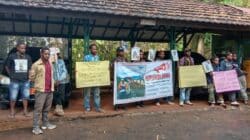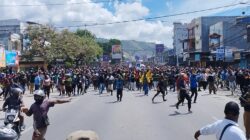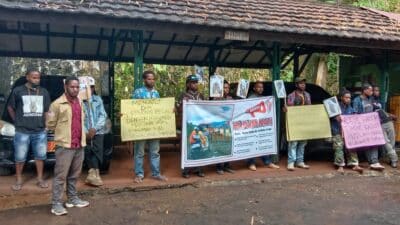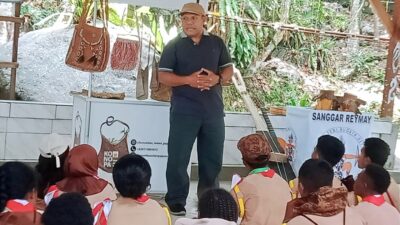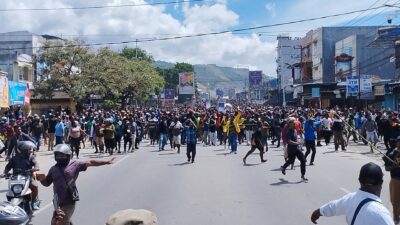Jakarta, Jubi – The Indonesian government launched a plan to establish a ‘food estate’ at the beginning of the Covid-19 pandemic in 2020 under the pretext of wanting to guarantee Indonesia’s food security.
As the health crisis began in April 2020, the Food and Agriculture Organization (FAO) announced that one of the implications of the pandemic would be increased food insecurity, which would hit the most vulnerable groups worldwide.
Not long after, Coordinating Minister for Economic Affairs Airlangga Hartarto revealed the government’s plan to convert hundreds of thousands of hectares of land in Central Kalimantan Province into new rice fields.
Then in July 2020, the government held regular planning meetings and expanded the food estate planning to several other provinces in Indonesia. Similar projects have now been announced in the provinces of North Sumatra, South Sumatra, East Nusa Tenggara, and Papua.
On July 7, 2020, President Joko “Jokowi” Widodo invited Minister of Defense Prabowo Subianto to oversee the implementation of the food estate program. Jokowi said the Ministry of Defense was deemed capable to react quickly in a crisis.
The Ministry of Defense, indeed, enthusiastically took up this mandate and even started its own search for land across Indonesia, apparently independent of a process coordinated by the Ministry of Environment and Forestry (KLHK). This marks the revival of the food estate concept: the government’s plan to create large new agricultural production areas.
A recent report of TAPOL and AwasMIFEE! demonstrated how the food estate plan has the potential to fuel corruption and produce food for export markets that only benefit agro-industrial oligarchs.
Looking at the prior and current plans, the food estate has and will cause ecological devastation, and will further deprive West Papuan indigenous peoples, the report asserts.
The report also highlights the serious weaknesses of the plan from its inception, namely the potential that it will weaken regulations designed to protect the environment, primary forest clearance and drainage of wetlands, land grabbing, and the potential for irreparable damage to indigenous culture in West Papua.
The government’s strong support for plantation agriculture corporations in southern Papua and other locations in Indonesia has the potential to increase corruption. The Minister of Environment and Forestry has also been accused of having regressed on her commitment to halt deforestation in Indonesia as declared at the COP26 Summit in Glasgow in 2021.
The 29-page report by TAPOL and AwasMIFEE! includes:
• A chronology of past agricultural development plans with a top-down approach in West Papua, most of which were poorly planned and short-lived but pose a long-term threat to the entire landscape of southern Papua Province;
• How the food estate plan has the potential to foster corruption, wherein corporate and state actors and their families and friends – who are not West Papuans – benefit from the allocation of land for the food estate;
• How the corruption potentials are facilitated by a new law that gives the central government additional powers to seize land for the food estate while evading environmental safeguards;
• How the growth of the plantation industry in West Papua over the past decade has had the negative impacts that caused indigenous peoples to suffer – including frequent incidents of horizontal conflict between communities and increasing local food insecurity;
• How the livelihoods and culture of indigenous peoples are threatened by the food estate when most of the workforce on existing plantations already employs non-Papuan workers, thus placing indigenous communities ‘suppressed at the bottom’ on their own land and reinforcing existing structural discrimination.
TAPOL chairman Steve Alston in his comments quoted by the Asia Pacific Report at the end of April said that people in the southern province of Papua for more than 15 years have endured land grabbing and forest clearing for large-scale plantations.
“They had been promised jobs on the plantations but were then sidelined because migrant workers from other parts of Indonesia had replaced them,” he said.
Through this report, TAPOL hopes to provide a complete understanding of the food estate to the public, policymakers, as well as the people of West Papua and Indonesia, particularly highlighting the confiscated customary lands, the potential for ecological damage caused, and all the dubious reasons behind the food estate construction.
The full report can be downloaded here. (*)



